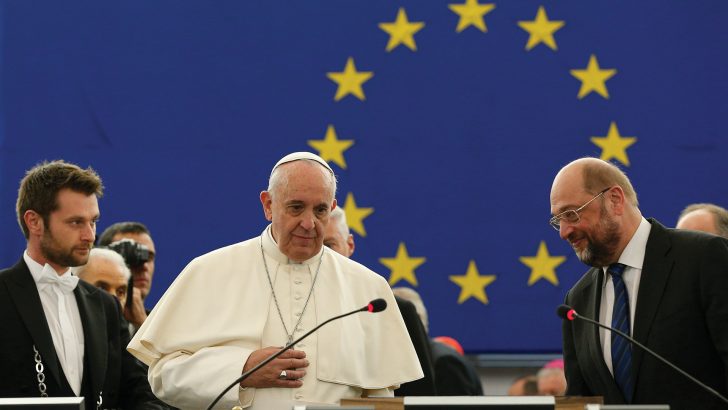The European Parliament voted Thursday in favour of a report describing abortion as “essential healthcare” and seeking to redefine conscientious objection as a “denial of medical care”.
Members of the European Parliament, the EU’s law-making body, voted on June 24 by 378 votes in favour, 255 against and 42 abstentions, to adopt the text, known as the Matic Report, at a plenary session in Brussels, Belgium.
The report also declares that violations of “sexual and reproductive health and rights” are “a form of violence against women and girls”.
Parliamentarians had earlier rejected two attempts to block the controversial report.
An alternative motion for a resolution by the EPP Group in the European Parliament failed, with 288 votes in favour and 373 against, reported the German weekly Die Tagespost.
Another motion for a resolution by the ECR Group, together with members of Hungary’s Fidesz party, gained 267 votes in favour, but 402 against.
Catholic leaders and pro-life groups had urged the European Parliament to reject the report, presented by the Croatian politician Predrag Fred Matic and debated on June 23, the day before the vote.
Speaking in the debate, Mr Matic said: “Tomorrow is a great day for Europe and the entire progressive world. Tomorrow we decide on positioning Europe as a community that chooses to live in the 21st or the 17th century. Don’t let history remember us as the latter ones.”
Radical
The Parliamentary Network for Critical Issues (PNCI), based in Washington, DC, described the report as “extreme” and “radical”.
The Secretariat of the Commission of the Bishops’ Conferences of the European Union (COMECE) expressed alarm at the text, saying that that it was “ethically untenable” to classify abortion as an “essential” health service.
The Matic Report, officially known as the Report on the situation of sexual and reproductive health and rights in the EU, in the frame of women’s health, was adopted by the European Parliament’s Committee on Women’s Rights and Gender Equality on May 11.
An accompanying “explanatory statement” claimed that the report “comes at a crucial moment in the EU, with backlash and regression in women’s rights gaining momentum and contributing to the erosion of acquired rights and endangering the health of women”.
Two Members of the European Parliament, Margarita de la Pisa Carrión and Jadwiga Wisniewska, set out a “minority position”, arguing that the report had “no legal or formal rigor”.
“It goes beyond its remit in addressing issues such as health, sexual education, and reproduction, as well as abortion and education, which are legislative powers belonging to the member states,” they wrote.


 Pope Francis and Martin Schulz, former president of the European Parliament, arrive at the European Parliament in Strasbourg, France, in this file photo, November 25, 2014. Photo: CNS
Pope Francis and Martin Schulz, former president of the European Parliament, arrive at the European Parliament in Strasbourg, France, in this file photo, November 25, 2014. Photo: CNS 